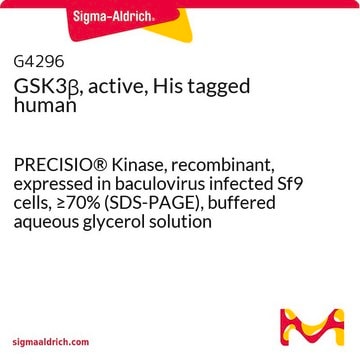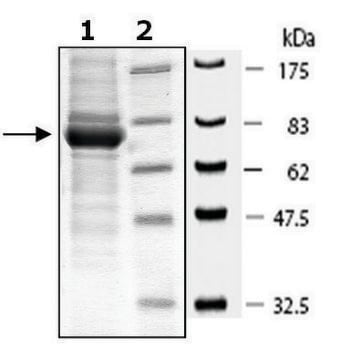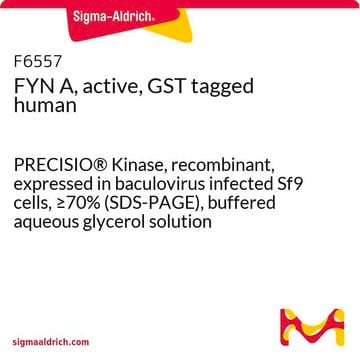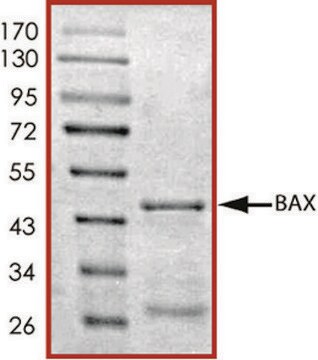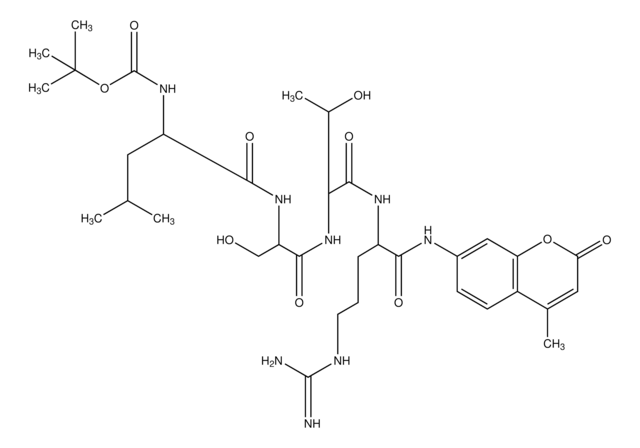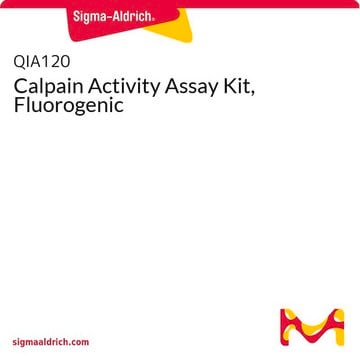SRP0356
GSK3β active human
recombinant, expressed in baculovirus infected Sf9 cells, ≥80% (SDS-PAGE)
Synonyma:
glycogen synthase kinase 3 beta
About This Item
Doporučené produkty
biological source
human
recombinant
expressed in baculovirus infected Sf9 cells
assay
≥80% (SDS-PAGE)
form
aqueous solution
specific activity
≥500 pmol/min-μg
mol wt
73 kDa
packaging
pkg of 10 μg
technique(s)
activity assay: suitable
inhibition assay: suitable
NCBI accession no.
UniProt accession no.
shipped in
dry ice
storage temp.
−70°C
Gene Information
human ... GSK3B(2932)
General description
Application
Biochem/physiol Actions
Storage Class
12 - Non Combustible Liquids
wgk_germany
WGK 1
flash_point_f
Not applicable
flash_point_c
Not applicable
Osvědčení o analýze (COA)
Vyhledejte osvědčení Osvědčení o analýze (COA) zadáním čísla šarže/dávky těchto produktů. Čísla šarže a dávky lze nalézt na štítku produktu za slovy „Lot“ nebo „Batch“.
Již tento produkt vlastníte?
Dokumenty související s produkty, které jste v minulosti zakoupili, byly za účelem usnadnění shromážděny ve vaší Knihovně dokumentů.
Náš tým vědeckých pracovníků má zkušenosti ve všech oblastech výzkumu, včetně přírodních věd, materiálových věd, chemické syntézy, chromatografie, analytiky a mnoha dalších..
Obraťte se na technický servis.
